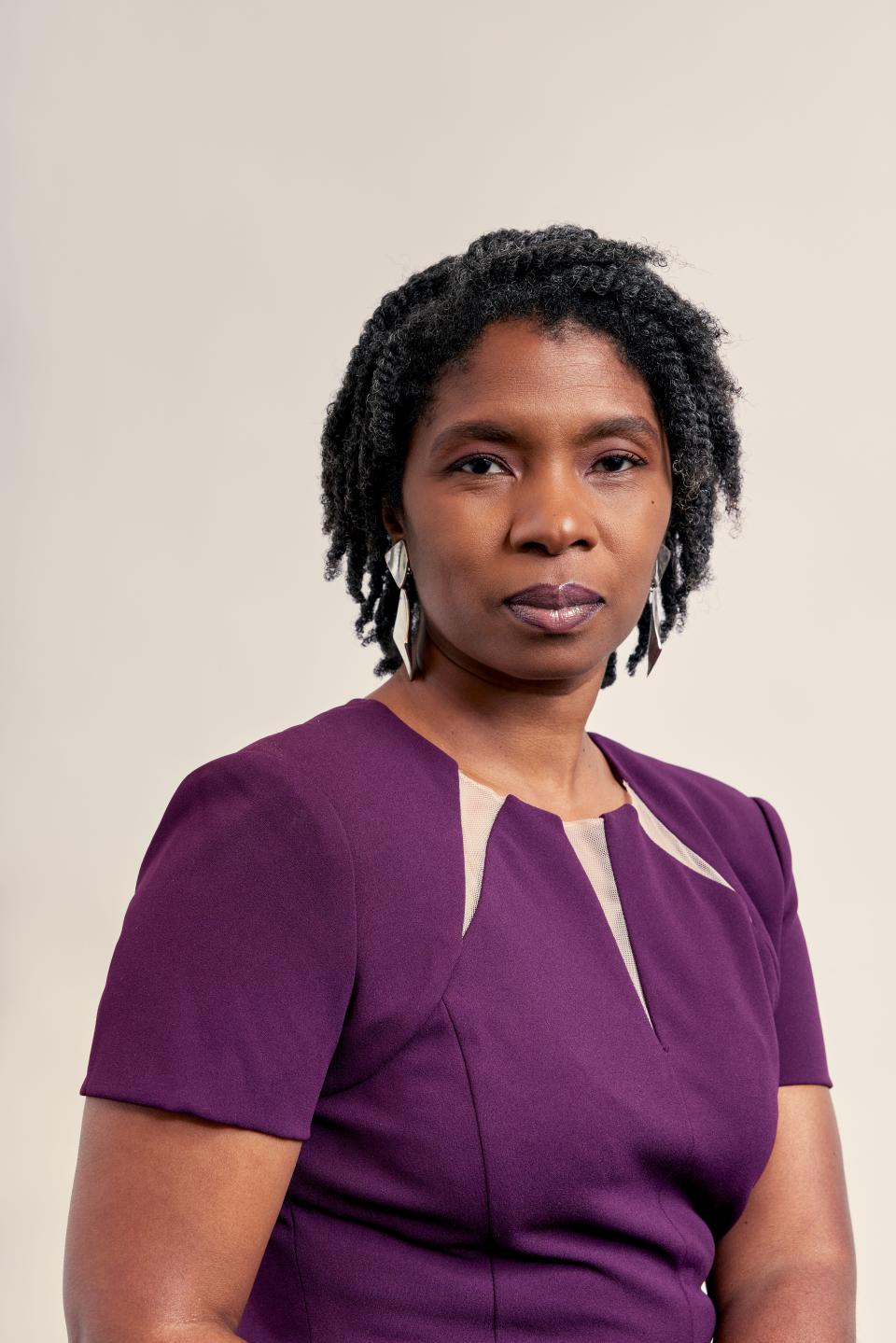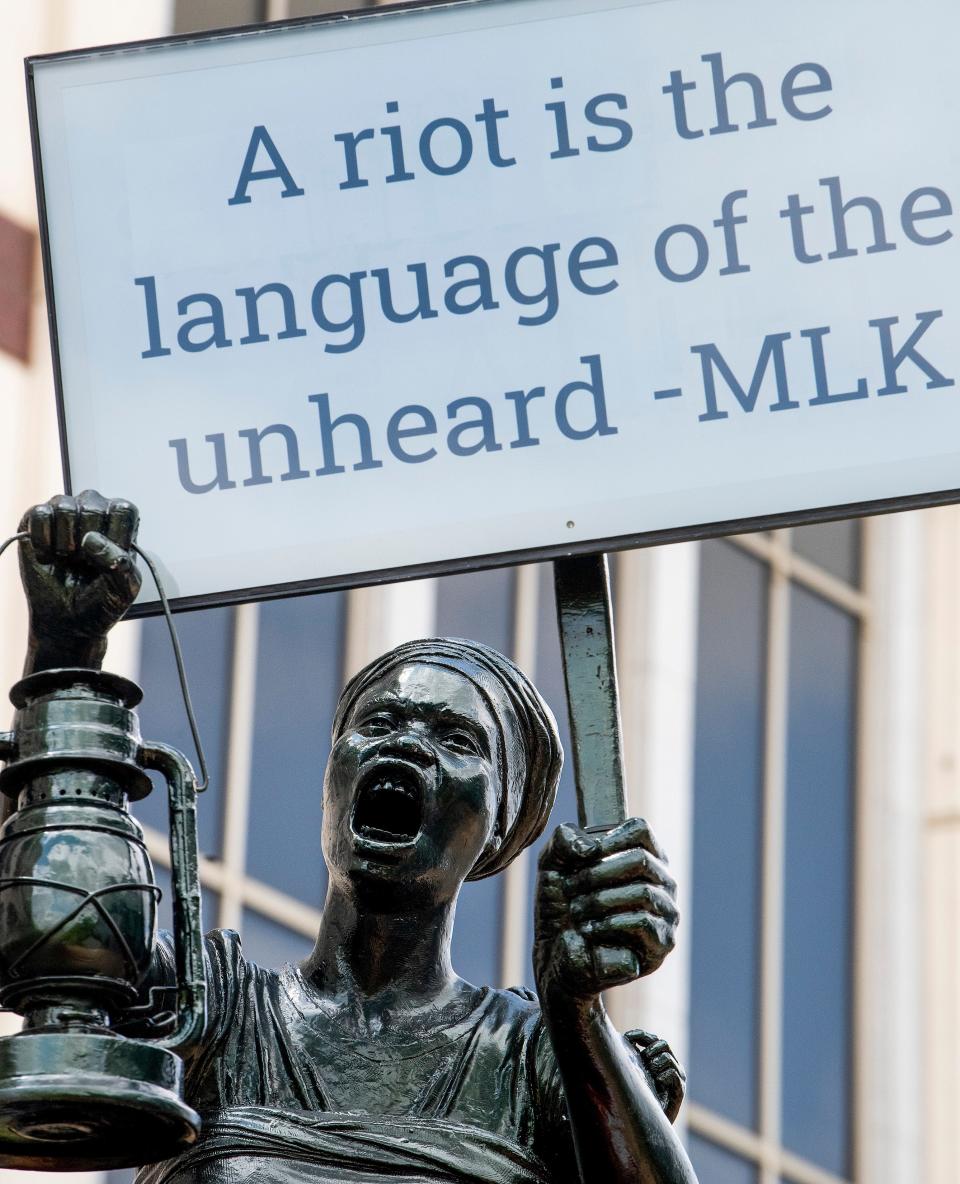Q&A: How SPLC 'state office' will take up top concerns across Alabama
The Southern Poverty Law Center will open an Alabama state office this year under the direction of Tafeni English, who previously led the center's Civil Rights Memorial Center in Montgomery. English, with experience working in fair housing, counseling and advocacy, will lead the center in its mission of building community in underserved rural Alabama.
If you thought the SPLC already had an office in town, you're right — that's where the SPLC does its work in legal representation, policy and programming. This office will have a different focus as part of SPLC's new "state office" model.
The Montgomery Advertiser spoke with English recently about her new role, the importance of connecting with rural areas and what she'll miss about working in Montgomery once SPLC finds a permanent home for the office. Read excerpts from the interview below.
Some questions and answers were edited for clarity. Questions are bolded.

The SPLC already has an office in Alabama, which is right in downtown Montgomery. What's going to be different about this office?
The difference is that the state office model is focused on and informed by local concerns. We're looking at their concerns, we're looking to strategize and collaborate and be in partnership with community organizations who are doing this work on the local level. In our headquarters model, like in Montgomery, we have the programmatic departments, we have our legal department and our policy department. The state office has none of those entities. What we do is we work in collaboration with policy if it's a local issue, and also will work on education of some of the state's biggest issues.
Do you know where the state office is going to be located?
Not yet. We'll spend the rest of this year on listening sessions throughout the state before we determine where the actual physical office will be located. I can tell you, though, that it won't be in Montgomery.
Specifically, we're looking to be on the outskirts of an urban area, possibly being in close proximity to rural communities. We've looked at the northern and southern parts of the state and also at the Black Belt, but again, we haven't made a decision, because we want where we land to be informed by local voices.
Why do you think it's important to connect with people in rural places?
I love rural living. I think quality of life and access to resources should be just as important for rural Alabama as it is for other places. I grew up in the small town of Lincoln, Alabama, in Talladega County, and being able to do this work in community, you realize how oftentimes our rural communities are rendered invisible, and that their needs are invisible and separate from the rest of the state.
Look at the sanitation crisis that was in Lowndes County. That was featured in national news, and federal folks got involved. And yet we've seen little change in Lowndes County. I'm wondering, where else are we having sanitation issues that haven't risen to the level of Lowndes County? There may be issues that we can actually prevent from happening.
More:The Montgomery Advertiser app now gives you access to 200 e-Newspapers
How are you going to connect with all the rural areas in the state with just the one office?
With the way the state office model is set up, we'll also have community organizers who will be divided up in the state based on region. And over the next six to nine months, we will have listening sessions in all of the regions.
What specific issues will your office focus on?
Last year, we conducted a landscape analysis in partnership with researchers at UAB and identified four impact areas for Alabama. We have eradicating poverty, which was really important to those who were interviewed. Strengthening democracy, or voting rights, was also elevated as one of the primary concerns, and behind that was the decriminalization of Black and brown folks in the state. Increasing awareness around white nationalism and extremist groups was also discussed in that analysis as well.
How do you think working at the Civil Rights Memorial Center prepared you for being director of the state office?

Being at the museum, and having discussions with visitors, whether they're local or from far out west, what I realized is that it really boils back down to how we are talking about issues on a community and local level. And I really believe that that's where we will actually see informed change and transformation in our local communities.
Being in that space has also been grounding. It's one thing to know the history of the civil rights movement in Alabama, but when you look at its significance and impact outside the South, it grounds you in a really different way. You have that constant reminder that it really was the people who led to significant change during the modern civil rights movement.
People to Watch:Felecia Lucky leverages Black Belt communities for good
What are you going to miss most about living and working in Montgomery?
For now I’m still here! When the time comes, I’m really going to miss the community of local activists. There is so much history here, and seeing those rising to leadership and remaining vocal on trying to improve Montgomery has always fueled me. In addition to that I’m going to miss walks at the Museum of Fine Arts and watching the sun rise and set. It truly is a beautiful sight to see.
Evan Mealins is the justice reporter for the Montgomery Advertiser. Contact him at emealins@gannett.com or follow him on Twitter @EvanMealins.
Your subscription makes our journalism possible. Subscribe today.
This article originally appeared on Montgomery Advertiser: Q&A with SPLC Alabama state office director Tafeni English

